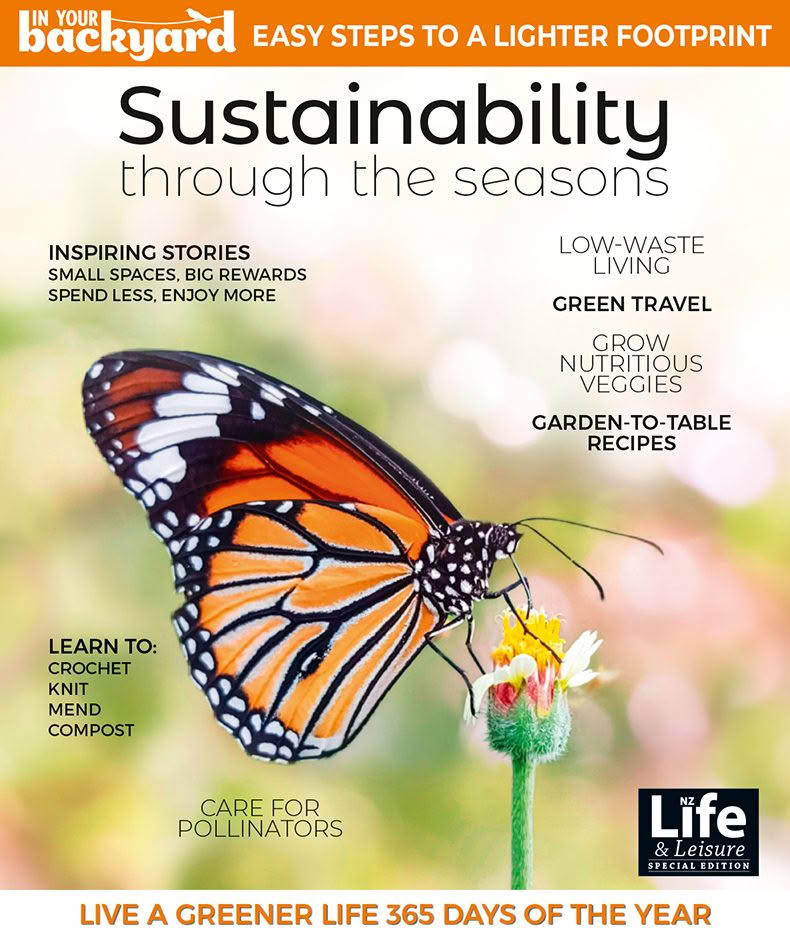Homegrown Kitchen author Nicola Galloway embraces a slower way of life with a garden-to-table ethos on her 800sqm block in Nelson
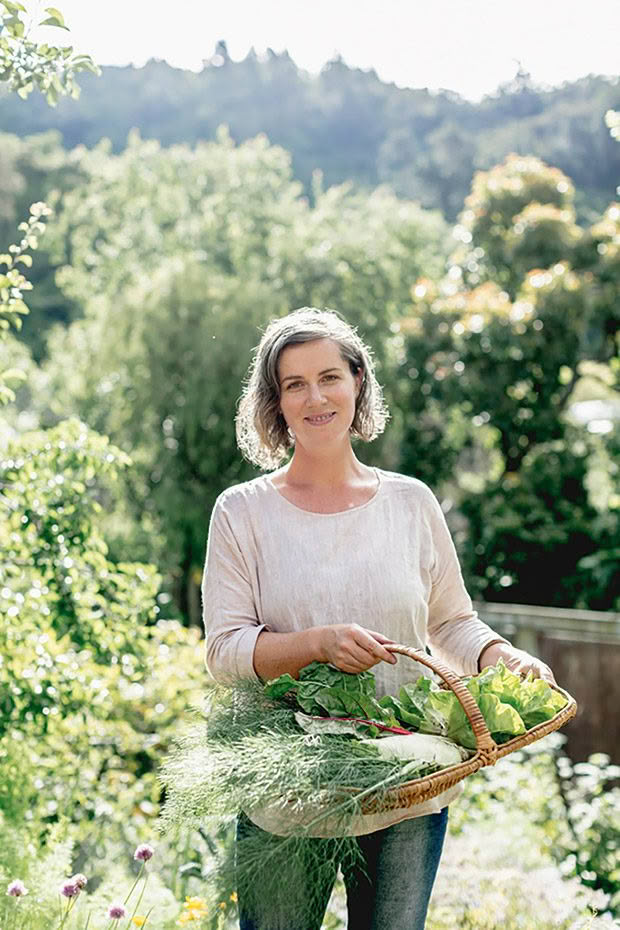
The real magic happens at snail’s pace in this devoted foodie’s kitchen and garden.
Words: Emma Rawson Photos: Kate Macpherson
The garden Nicola Galloway has created for herself and her family in suburban Nelson has been worth the wait. And wait one must: the fennel and kohlrabi took their time, growing fat and lovely over several months before making an appearance as delicate mandolin-thin slices in an elegant salad bowl, scattered with walnuts and strewn with edible flowers.
A jar of sauerkraut bubbles and fizzes away on the kitchen bench. In two weeks, it’s ready to eat, but will taste better if left a little longer, says Nicola, author of Homegrown Kitchen. More deliciousness is always on the horizon.
In her backyard, more than 30 fruit trees are busily shaping up to impress Nicola come harvest; the liberty apples are dreaming of becoming a spiced apple compote, the omega plums will dance in the mulled wine, and figs will star in focaccia.
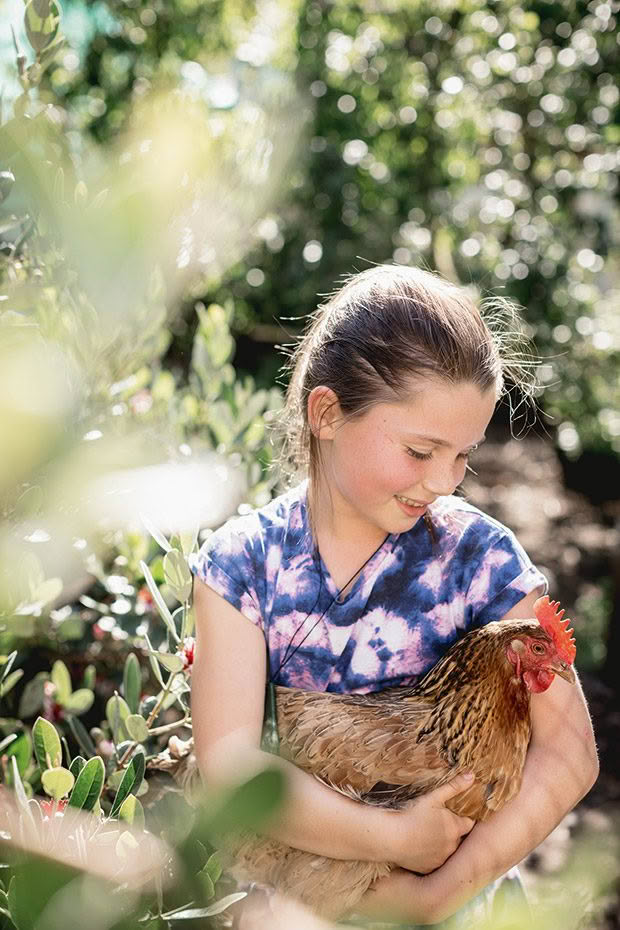
All this productivity happens on an 800-square-metre section in The Brook, just minutes from Nelson’s city centre. Breaking the calm, and drawn by the aroma of baking sourdough, comes the rapid fire of little feet. Nicola’s kids, Mika (8) and Teo (7), race in from the garden for a slice of yum.
The sourdough is the product of Nicola’s honorary third child — a sourdough starter. Though it has no birth certificate and is much more housebound than the other two, Nicola takes excellent care of this microcosm of bacteria and yeast living in a jar on her kitchen bench. She nourishes it daily with flour and water, and takes it on holiday with family and when she travels the country teaching breadmaking and fermentation.
“Many of us are looking for ways to slow down and baking bread is a beautiful, tactile experience that is very grounding,” she says. “There’s nothing like preparing dough with your hands. I still get a thrill when I take a loaf of bread out of the oven.”
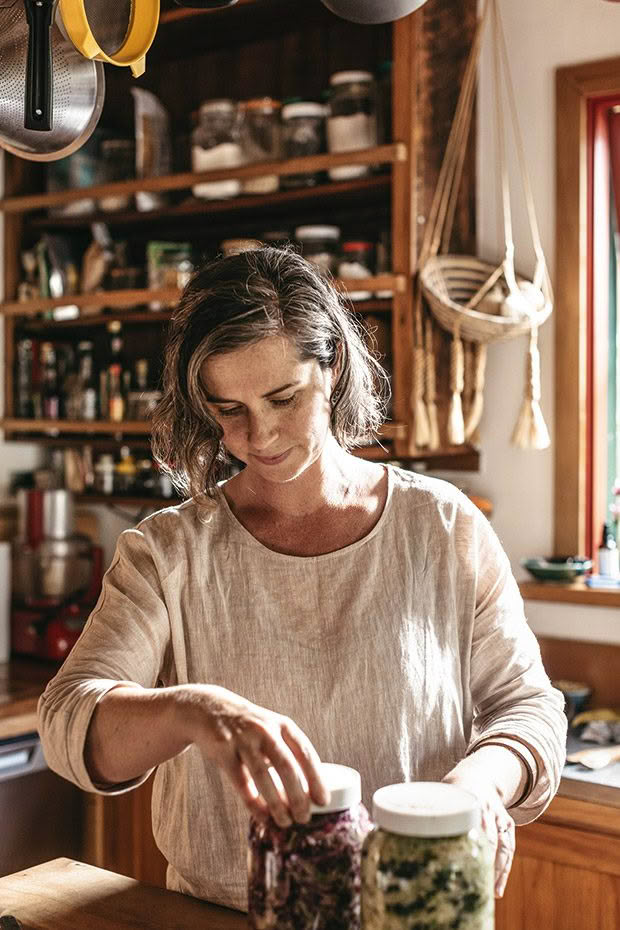
The secret to Nicola’s bread? Time. It takes up to a week to create a living, breathing, fizzing, sourdough starter. Friendly bacteria in the environment (lactobacilli) and wild yeast (tiny fungi living on flour) work together when water and flour are mixed.
Nicola Galloway’s work life used to be anything but slow and was a lot less harmonious. She inherited a love of cooking from her grandmother, trained as a chef when she was 19 and, once qualified and working in fast-paced kitchens, she discovered she was not well-suited to the long hours and high-stress environments.
In 2002 on her OE in British Columbia, she worked in an Italian restaurant making a mile of pizzas a minute. It was hot, fast work, and Nicola felt unwell. Perhaps all that dough was the culprit? On her days off she studied for a diploma of nutrition and, wondering if gluten (in wheat flour) was making her ill, she completely stopped eating wheat.
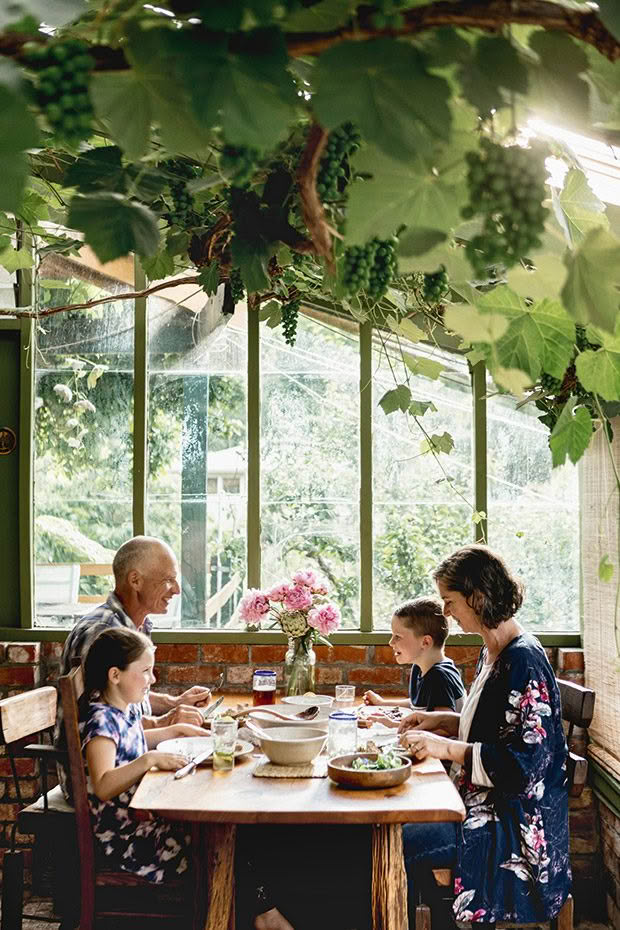
The heritage grapevine in Nicola’s conservatory is one of her favourite features of the house. It’s too hot for dining in the height of summer, but autumn and spring are ideal.
“I realized wheat wasn’t the enemy, for me at least. The slow ferment of a sourdough process changes the structure of the gluten, and for some reason, that’s easier for my body to process. It’s only anecdotal evidence, but a lot of people who come to my sourdough workshops tell me that’s the case for them as well.”
Since discovering sourdough, she has made amends with her former adversary, gluten. Nicola returned to her hometown in 2003 intending to stay only a short time, but then she found an oasis of nutrition in the form of the Nelson Saturday Market with its abundance of seasonal produce and local food products.
“I felt like I was in heaven with all the locally grown produce, and great cheeses and breads. I would consider moving to other parts of New Zealand and then think, ‘That place is nice, but it doesn’t have the same food scene.’”
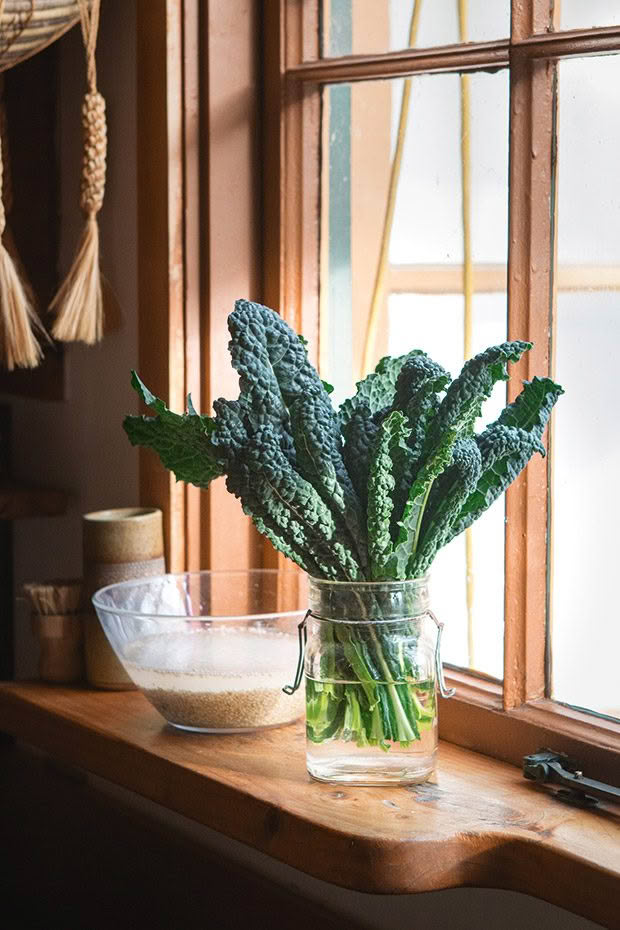
She founded Fresh2U, a veggie-box delivery company in 2005 with Nelson Saturday Market stalwart and organic market gardener Wolfgang Mann, who was then the owner of Appleby Farm. “Wolfgang asked me to help at his organic produce stand, and it grew from there. It worked with my food philosophy to source locally grown food as often as possible.”
The pair ran the veggie-box delivery company for seven years until they sold the business when Wolfgang sold his farm in 2013. These days, Nicola has less need for the markets as her own gardening prowess has grown.
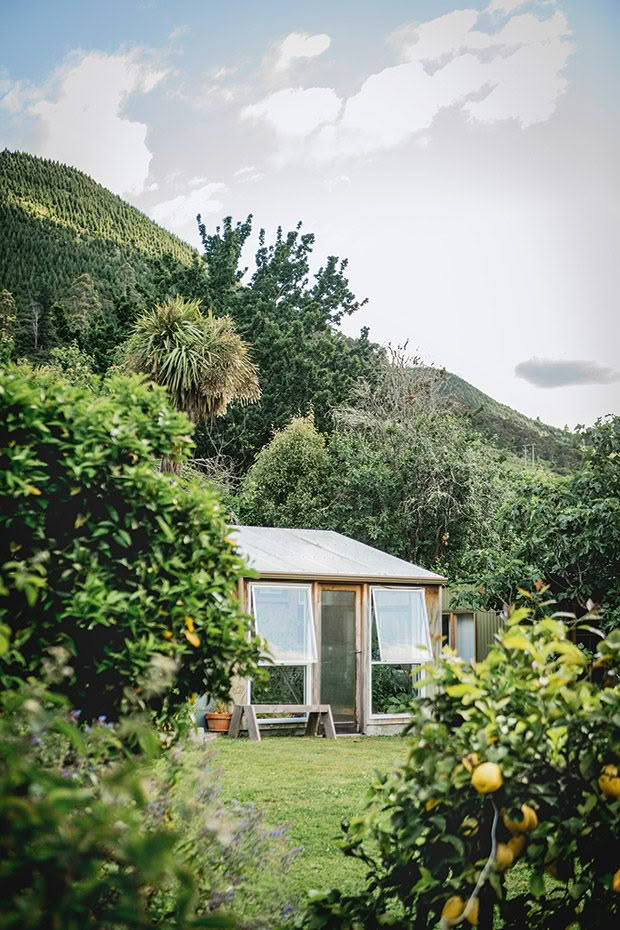
She comes from a gardening family. Her parents and her grandparents are avid growers who live locally and encouraged her to get started. And, when she and husband Holger purchased their property in 2006, there were already 20 heritage fruit trees and a grapevine in the garden. The vine stills gnarls its way through the sunroom.
“That grapevine did it for me. Buying this house was such a no-brainer. I love how the garden and the house blend.”
In the past few years, Nicola and Holger have planted 12 more fruit trees and shrubs and packed the garden with vegetables. Thanks to family advice, Wolfgang’s teachings, and trial and error, she is now mistress of an extremely productive plot.
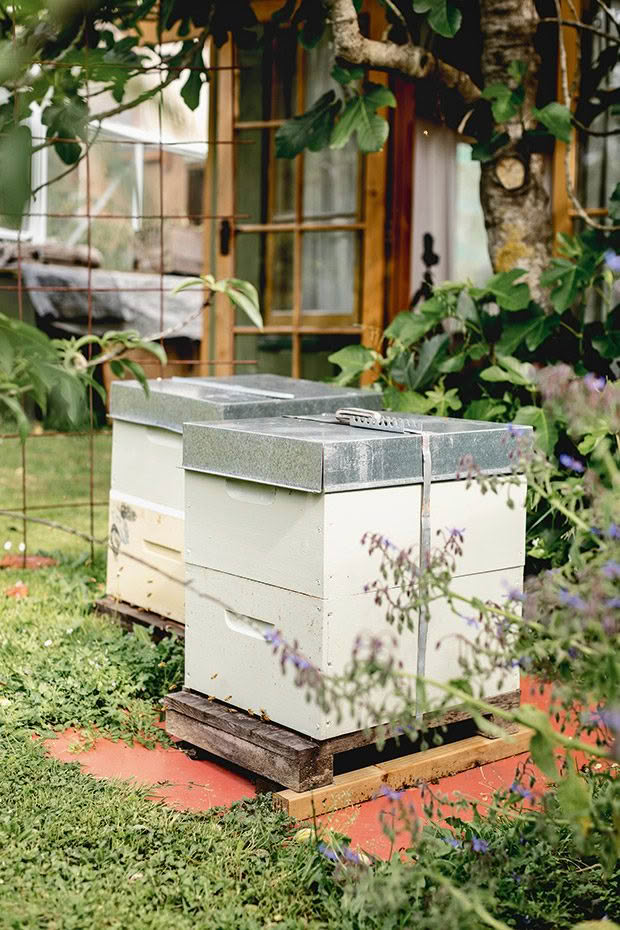
“I garden in quite a wild way. I used to grow in neat veggie rows, but I found I had a lot of empty and unused space between harvests. Now I plant veggies where I have a spare spot, and I always let a few plants go to seed for the bees and to save seed for propagating next season.
“It means that if I’m gathering vegetables to make a salad, I now walk around and enjoy the whole garden because the food is growing throughout the property, rather than in just one patch.”
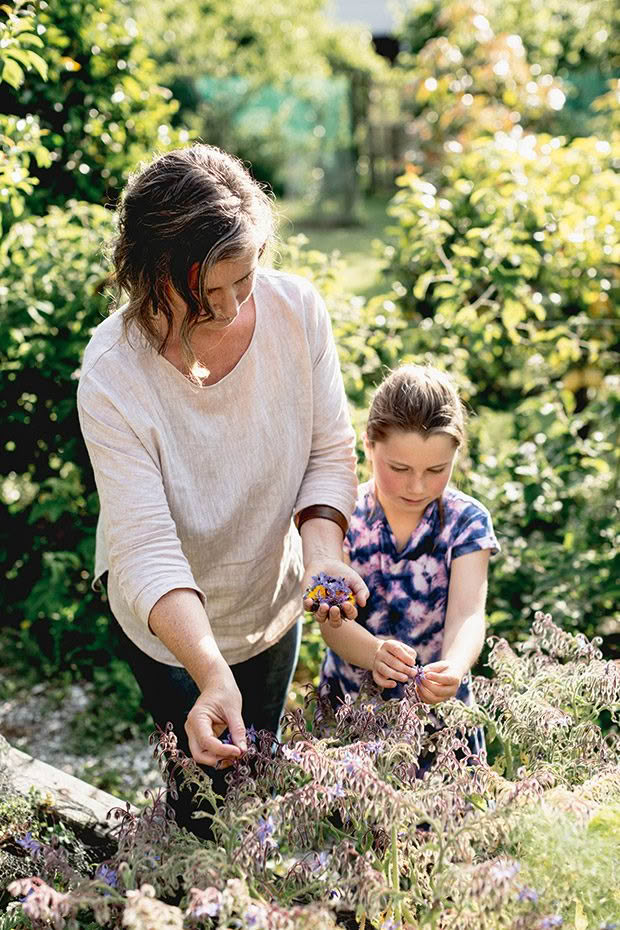
Making the most of her produce has fueled Nicola’s interest in preserving and fermenting. “Let’s face it, when you have 10 kilogrammes of fresh figs, you can only eat so many before you have problems,” she laughs.
When she was six months’ pregnant with Mika, and becoming even more conscious of the food she ate, Nicola began experimenting with low-sugar preserving.
“This is easy if you use a good bottling technique. I use a water bath. The shelf-life of low-sugar preserves is shorter but, usually, I find it’s long enough to last through the winter.”
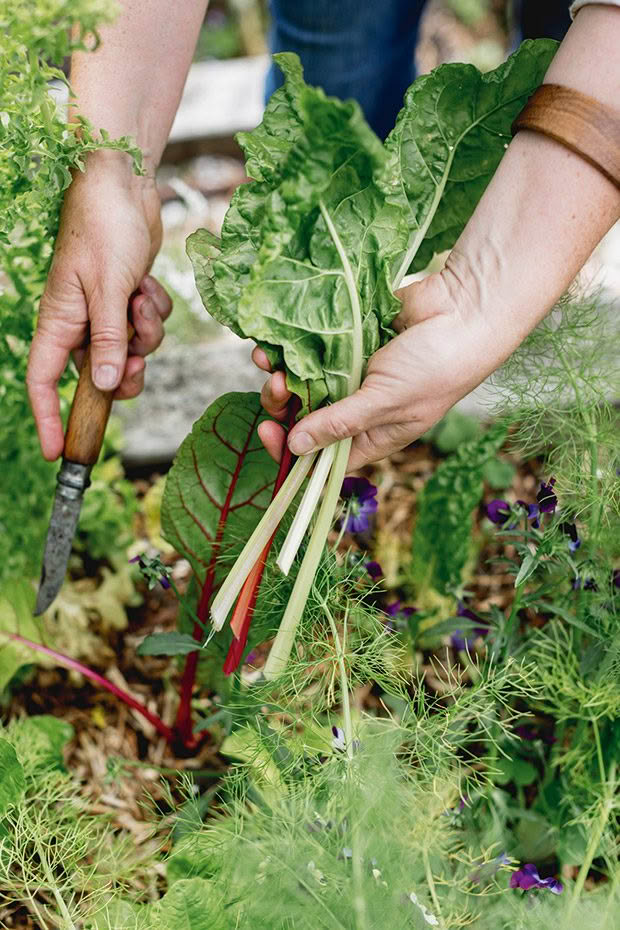
Fermentation, also a healthy way to preserve vegetables, introduces good bacteria to the gut. Nicola encourages people to try kombucha and kvass tonic.
While her kids are suspicious of the slimy SCOBY blob growing on top of her kombucha jar, they’re keen to help their mum in the garden.
“When my daughter and I planted the tomato seeds this year she said to me, ‘This little seed will grow into a tomato plant, that’s just magic, Mum.’ How can you argue with that? It is magic.”
WHAT’S GROWING IN NICOLA’S SUMMER AND SPRING GARDEN
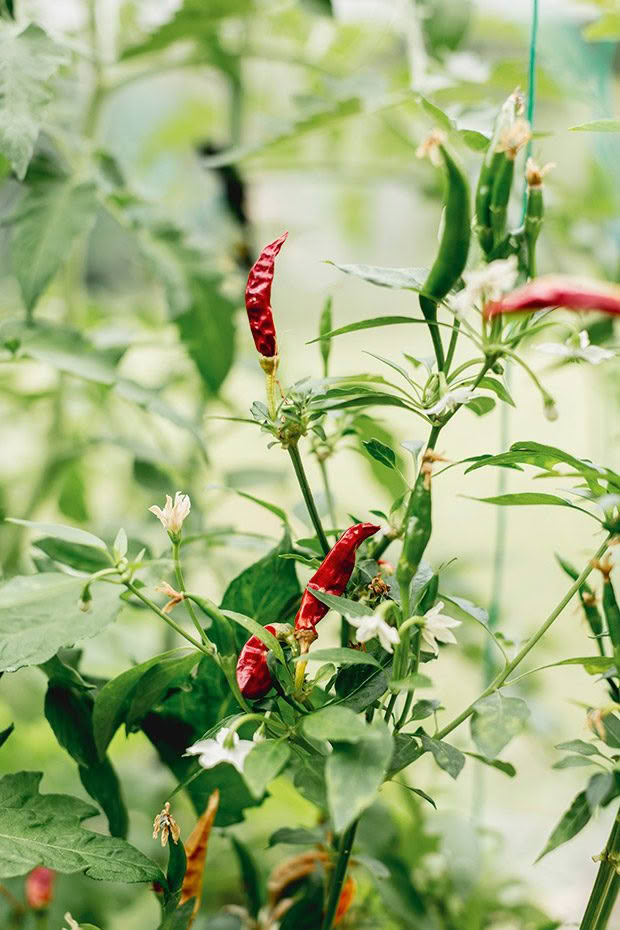
Veggies: peas, broad beans, kohlrabi, fennel, asparagus, garlic, onions, lettuce, courgettes, runner beans, potatoes (a mixed box from the Koanga Institute), pumpkin, spaghetti squash, spring onions.
In the hot house (built by husband Holger from upcycled windows): tomatoes (‘black krim’, ‘moonglow’, ‘isle of capri’, ‘black cherry’); chillies; and basil.
Fruit trees and shrubs (30+), including figs (‘brown turkey’); grapes (‘concord’); peaches (‘wiggins’, ‘golden queen’ and ‘blackboy’); plums (‘greengage’, ‘black doris’ and ‘omega’); avocados (‘hass’ and ‘fuerte’); lemons (‘lisbon’); mandarins; oranges (‘valencia’); raspberries; thornless blackberries; strawberries “that went crazy this season”; feijoas (‘apollo’ and ‘kaiteri’); apples (‘liberty’); nuts (hazelnuts, almonds and walnuts).
The bees and pollinators love: borage, calendula, sweet peas, alyssum, scabiosa, cornflower, red manuka, elderflower and almond blossom.
This is an extract from our special edition In Your Backyard: Living Lightly. The next edition, In Your Backyard: Sustainability Through the Seasons, is filled with practical advice on self sufficiency ideas and ways for living a greener life 365 days a year. Order online here.
